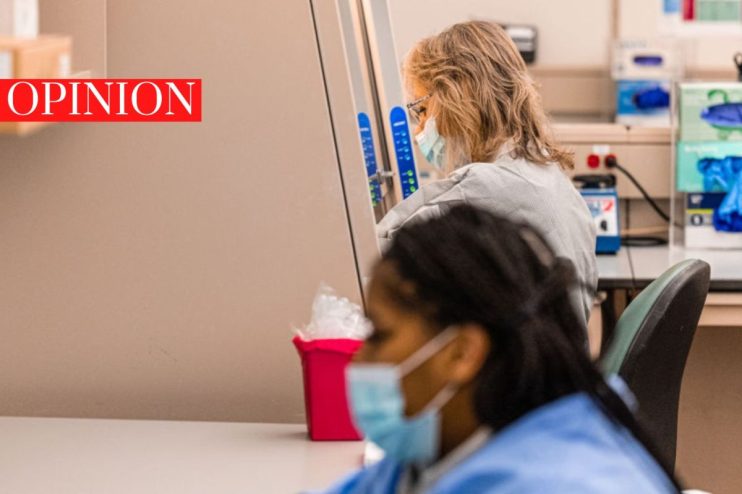Flexible workspace can’t just be for desks, it needs to be for London labs

Investors for life sciences aren’t out in the back-end of Slough, so why should the scientists be? Ed Crabtree on the growing demand for labs in London
What do you get when a life science business meets a flexible workspace? It sounds like the set-up for a joke, but its “punchline”, rather than being funny, is a trend helping to change the traditional “office” market in London. I’m talking about flexible lab space, the culmination of a tech-enabled, cultural shift in working.
Science-led businesses, once the preserve of specialist business parks, often in university cities, are increasingly taking space in the capital. And, just like traditional office-based businesses, they want flexible workspace – short leases of one, three or five years for space fitted out and ready to move in. Plug and play, lab enabled, flexible workspace.
The growing demand for science space in the city is highlighted in Canary Wharf Group’s announcement recently that it had received planning permission for a 23-storey tower it’s building with Kadans Science Partner. Located at North Quay in the docklands, it will be Europe’s largest and most “technologically advanced” life science facility.
There is a flourishing life science cluster in the Docklands and at King’s Cross. Commercial life science businesses are drawn to London for a number of reasons. Just like traditional office-based businesses, the sector wants to attract talent, and those who’ve studied science don’t always want to stay in a university city.
London’s workspace has more variety on its doorstep. Staff want a place to get great coffee on their way in, a good choice for lunch and places to meet friends after work. It means they can work where other people work rather than being stuck in an industrial park in Slough.
And it’s where the money is. More venture capital and private money is going into start-ups and scale-ups – enviro and medi-tech; it’s not solely funding from universities. The City and Docklands just so happen to be a money hub. Investors don’t tend to be based out in the sticks.
Life science businesses are also bringing with them demand for flexible workspace. They want to easily lease additional space as they grow or project space as required.
Plug-and-play labs come fitted out and ready to start working. And in life sciences, speed to market is important.
Technology is enabling flexible lab space for the life science sector. These are sophisticated businesses requiring high-speed digital connections and high levels of digital security, because more often than not these businesses are transferring large, real-time data to collate with other businesses or colleagues across the globe.
Digital technology in flexible offices, where multiple businesses work out of the same building, has advanced to meet market demands. We recently found that the average connection speed requested by businesses in flex space has risen by 1,800 per cent in seven years.
Broadband and WiFi security has equally advanced and is now as good as leasing a private line. This, given that it can take three months to get a new broadband cable installed, has another speed advantage for fast-moving businesses who need to plug in and scale out.
All this has made flexible workspace a viable option for more businesses, including life sciences.
Flexible lab-enabled space, while costlier to fit out for landlords, is the natural extension to flexible offices. And it’s bringing a new demographic to London and new use to London’s business space.